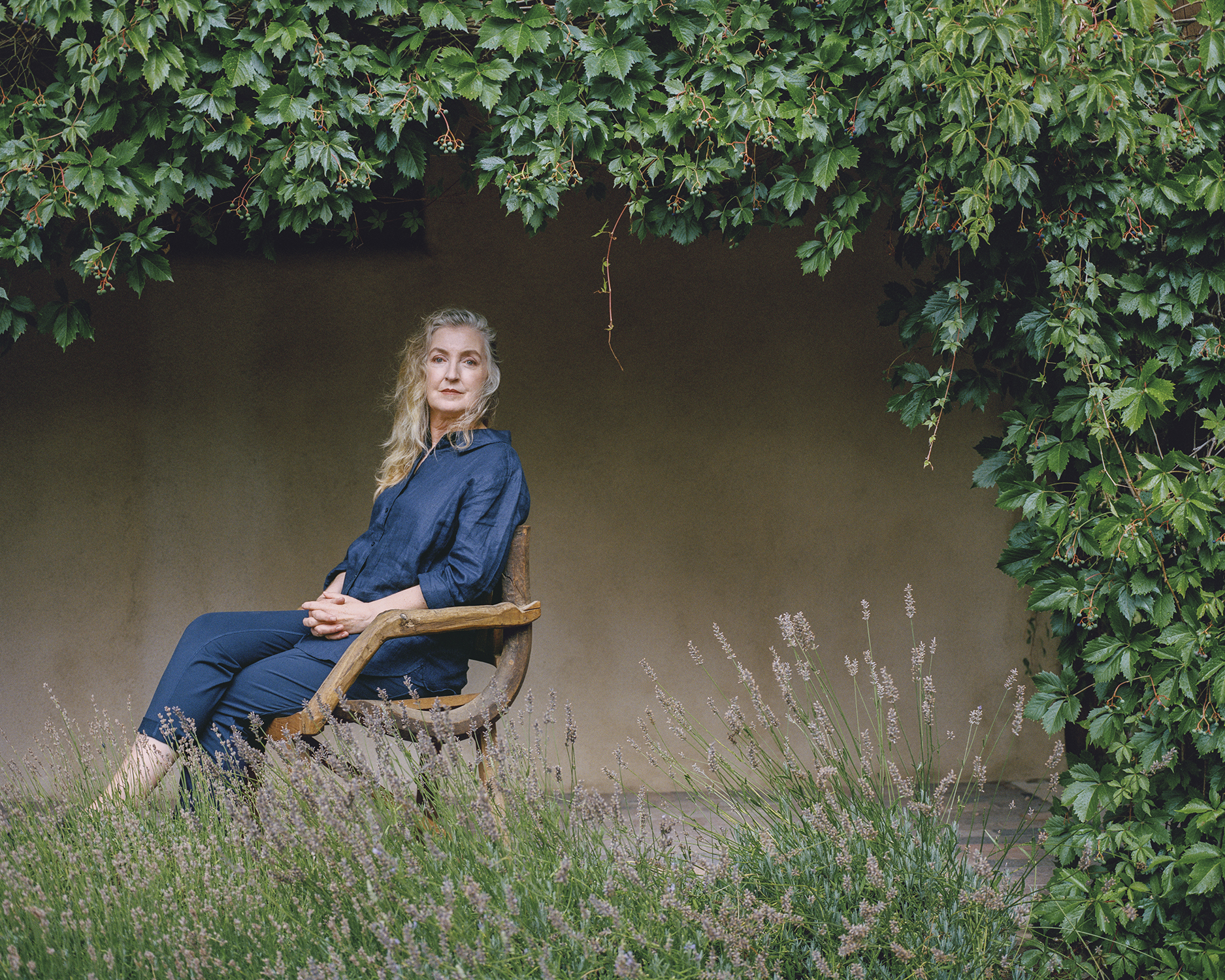Rebecca Solnit, 63, is one of the world’s foremost writers on climate and feminism. Across more than 20 books – including Men Explain Things to Me (2014), and Orwell’s Roses (2021) – she has incisively and poetically explored activism, social change and the need for hope in troubled times. Her latest book, No Straight Road Takes You There (Granta), collects a number of essays that argue we must take the long view in order to better understand the present. She lives in San Francisco.
What is the central idea you hope readers will take from your new collection? I’m arguing for more complexity. It’s about saying: this category is not airtight. It’s full of exceptions and anomalies. This thing had consequences, but not in the immediate, simple way people expected. Change often takes a very circuitous route.
What do we risk if we don’t have that mindset? Often, the expectation of things being instantaneous, obvious, predictable, controllable, ends up leaving people feeling powerless, bitter, cynical, disappointed. I see people snatching defeat from the jaws of victory again and again by not understanding the indirect, complex, unpredictable, slow processes we’re often engaged in.
You describe yourself as a tortoise at the mayfly party. What do you mean by that? A tortoise at the mayfly party is a creature that lives for 150 years instead of an afternoon. It’s my frame for suggesting memory. One thing I find astounding is that at the beginning of the century, we did not really have an alternative to fossil fuel. But if you look at what’s happened with, say, solar since 2000, it’s revolutionary. We’re now in a situation where renewables are the best way to produce electricity, and electricity is a better way to heat your house, cook your food and move your vehicles. Yet I constantly run into defeatism: “Nobody’s doing anything. Nothing’s changed. There’s nothing we can do” – all of which are results of a kind of amnesia.
How do you reckon that longer view with the urgency needed to solve the climate emergency? I see slowness as a worldview that equips us to do what needs to be done more swiftly.
What markers of progress would we do better to remember? People love to say: “Oh, feminism hasn’t achieved anything.” It’s always a sign that people have absolutely no sense of what the status of women was in 1960 or 1970. Yes, women [in the US] have lost reproductive rights since Roe v Wade was overturned on 24 June 2022. But if you look worldwide, in Ireland, Spain, Mexico and a few other places, women have actually recently gained abortion and reproductive rights.
In Despair Is a Luxury, you write about having routines that help you keep the gloom at bay. What are they? Although I hate the term “self care”, there is a way in which rationing your exposure to horrible things and returning to the things you love, the things you’re fighting for, is part of the work. Like Orwell, I go to nature constantly. That helps. Friendship helps. Bicycling to San Francisco’s super farmers’ markets and cooking for friends helps. And our city has a big flower market, which I cycle to. I always come home with a bouquet or two.
Why don’t you like the term “self care”? It’s been commodified as a consumer activity, often for women, often involving beautification. That doesn’t always feel like real self care. It feels like making yourself an attractive product for the patriarchy.
Do men still explain things to you? Periodically. Social media is that place where strangers tell people things without checking to see if they happen to be one of the world’s leading experts on them. I don’t suffer terribly from it, but I see it happening around me all the time with experts on authoritarianism and climate science. You know: never underestimate the confidence of a mediocre man. But that’s kind of what social media is for.
What keeps drawing you back to the essay as a form? Orwell once said that in essays, ideas are the characters. I’m interested in what things mean, how ideas work, and in finding patterns in the world. And I’ve found that reality is often stranger than fiction. Fiction has to be plausible, which means some of the remarkable coincidences and transformations don’t fit into conventional, realist fiction. Essays just suited me.
Newsletters
Choose the newsletters you want to receive
View more
For information about how The Observer protects your data, read our Privacy Policy
‘I’m interested in what things mean, how ideas work, finding patterns’
‘I’m interested in what things mean, how ideas work, finding patterns’
All that being said, do you enjoy reading fiction? I do. Although I’m like Kafka’s Hunger Artist in that I want to read fiction, but finding fiction I want to read isn’t always easy. When I find something like the Naples quartet [by Elena Ferrante], I’m thrilled.
What novel have you most enjoyed recently? Oh God, I’m drawing a complete blank. I’m a person who wanders into a bar, instantly forgetting what it is I like to drink.
What are you planning to read next? I have books stacked up. I’m right now looking at a new biography of Audre Lorde, Survival Is a Promise by Alexis Pauline Gumbs. I often lose track of what I’m reading, because there are so many books here. I joke that I don’t need a personal assistant. I don’t even need a housekeeper. I need a librarian.
How many books do you have? I’d say about 200 linear feet.
Who inspires you the most at the moment? There is a real tendency to tell history in terms of lone heroes, which turns into heroism being a matter of having lots of muscles and the ability to sustain violence. Or there are little teams of Ubermensches, who are sometimes sexy babes, but it’s still a very masculine model. What’s missing from the discourse is that change is mostly brought by people who aren’t exceptionally muscly, but are exceptionally well-informed, stubborn or patient, and doing the organisational work to make change in the ways that truly matter. I see that all around me.
No Straight Road Takes You There is published by Granta (£16.99). Order it at observershop.co.uk for a special 20% launch offer. Delivery charges may apply
Photograph by Trent Davis Bailey

